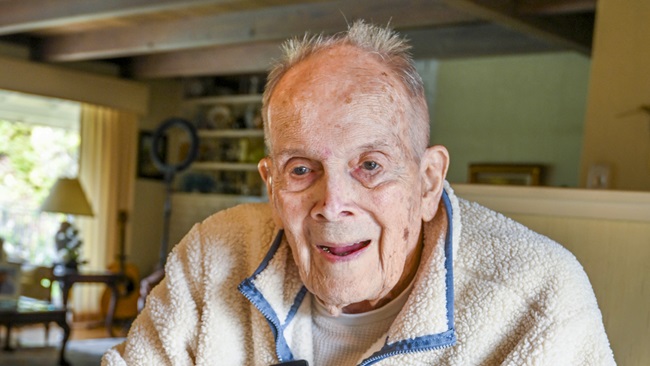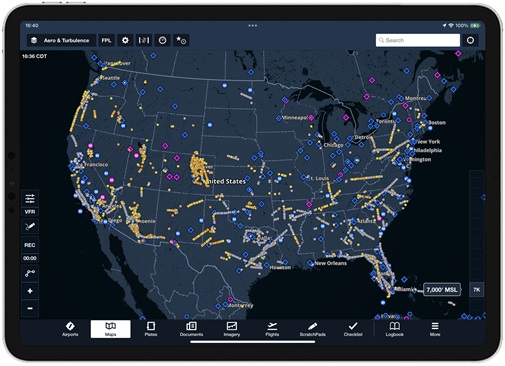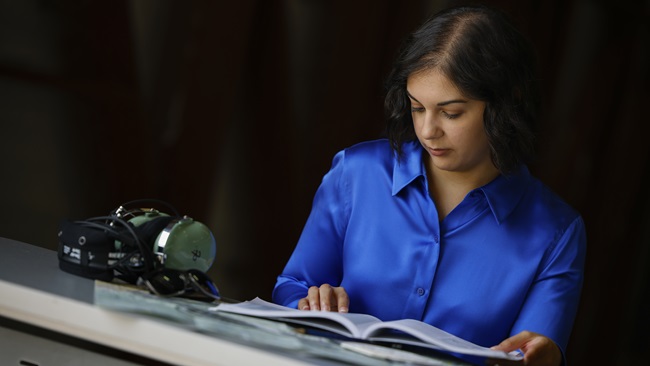Voice of experience
The majority of the responses to Delta were respectful, articulate, and well reasoned. The writers made their arguments with facts and personal examples. Many writers had years of experience as pilots and airline passengers to draw on. The e-mail that follows is one of the best diagnoses of the airline delay problem we've seen.
Dear Mr. Grinstein:
Delta e-mails to its frequent fliers indicate that general aviation is somehow responsible for airline traffic delays.
As a 20,000+ hour airline captain, I have flown out of almost every major (and many small) airports in the USA and around the world. General aviation aircraft operating at airports served by airlines, especially those served by your airline (Delta) are almost NEVER the cause of any delays and you should know that. Ask your own pilots what the causes are. Ask them why they aren't getting out of the gate on time. Ask them what causes late arrivals.
I'll try to itemize the MOST common reasons I have seen in 28 years of airline flying as a pilot for another major airline that operates competitively from the same airports Delta flys from:
1. Failure of the airline to get the passengers and bags ON BOARD! That's the PRIMARY reason for airline delays. Most airlines have gotten much better at boarding passengers, and getting the cabin door closed, but the bags, and sometimes the fueling, are the primary reason for the delay.
2. Basic failure to get the plane off the gate. Doors closed, bags loaded, pilots ready ... but there is no one to do the push, or the alley way behind the plane is blocked (usually from your own airline), or ramp control/ground control frequency is so busy your pilots cannot get a word in edgewise to request permission to push back.
3. Pushback problems: Trying to load last minute bags after the plane has pushed, or generally sloppy work on the part of the pushback crew can waste valuable minutes as the engines are started. After that, ATC (ground control) delays providing taxi clearance can be a problem. This is due to too many airlines, NOT general aviation, trying to taxi at once!
4. Taxi routes: Most airports today have a good plan, good taxi-way layout, but many of the older airports such as LGA, EWR, BOS, even SFO to some extent, have poorly designed taxi routings and it causes bottlenecks (crossing runways, airliners all trying to converge on a single runway for takeoff while waiting for landing airlines to pass by). The "conga lines" at EWR and LGA are a major problem that cause delays down-line for your airline because if you can't get OFF the ground, you're plane is going to be late IN and then late OUT at the next airport. The domino effect. FIX the problems at the hubs so your planes can get IN and get OUT.
5. Notice to this point, I have NOT mentioned weather nor maintenance delays? Again, those happen, and are NOT a general aviation-generated problem.
6. Departure and arrival ATC delays: Some air traffic controllers can handle any volume of traffic, some can't. The Chicago approach and departure control are amazing. They can handle any amount of traffic you give them. In 28 years, I've been impressed with ORD handling of traffic. Departures are simple: Turn to this heading and get out of town! It works. They separate the planes and you're on your way. I wish every air traffic controller had a mandatory 6 month duty at ORD approach and tower, after which he could go to his permanent assignment and relax for the rest of his life. It's all relative. SYD (Australia) thinks they have a busy airport and have many rules and run you all over the sky before they let you land, yet they have the traffic count of CID (Cedar Rapids, Iowa). But they think they're busy.
7. En route ATC can be a drag, but again, it's NOT general aviation up there at FL310 — FL390 where the airlines are flying. In the USA, almost the entire country is under radar coverage. If a slower biz-jet is in your way, ATC can easily give you a small 10 degree turn and you simply go around the biz-jet, or you climb 1000' and go over him. ATC can handle that easily. Slow biz-jets (and there aren't that many in the sky compared to the number of airliners on your routes) are simply NOT a problem. For the most part, the biz-jets make their economy at HIGHER flight levels than airlines fly, anyway. FL410-FL450 are rarely visited by airlines, but are fuel efficient levels for the Learjets and Citations and Gulfstreams who can cruise up there easily.
Please STOP your attack on general aviation. I have flown all the Boeing jets, I have a prior background in military jet fighters (USAF, flew F-4s in Viet Nam and the USA), and have and still do, fly general aviation piston aircraft. In the homebuilt experimentals, we stay far from airline airports and same for the light Cessnas I fly. Please do NOT do anything to tax our flights, as we are simply NOT PART OF YOUR PROBLEM!
Thank you for reading this, if you do.
Dan Eikleberry
Captain, 747-400, United Airlines
(Recently forced into retirement by the archaic age-60 rule!)
More than 3,000 people set Delta straight
Some of Delta Air Lines' best customers are telling corporate bigwigs why they are wrong. More than 3,000 so far have responded to the recent e-mail broadside, which blamed airline delays on general aviation and the current FAA funding system.
"The scheduled carriers' own hub-and-spoke route system is the rotten apple in this barrel," wrote an Arkansas pilot. "When you and your Air Transport Association colleagues insist on figuratively cramming 16 lanes of traffic into a four-lane road two or three times a day, what do you expect will happen?"
Delta had sent messages to its frequent fliers, claiming that the current tax system is unfair to the airlines, and that general aviation is somehow responsible for traffic delays. And this week an AOPA member alerted the association that the Delta captain on his recent flight encouraged first-class passengers to contact their legislators and support the airlines' position.
Here's the truth: Most airline delays are due to the airlines' own scheduling practices and weather. So says the Department of Transportation. General aviation flights are less than 4 percent of the traffic at the nation's 10 busiest airports.
Air traffic control modernization (NextGen) will improve things, but it's not a panacea. It can't make thunderstorms disappear, nor allow two airliners to land simultaneously on the same runway. GA is willing to help pay for NextGen and has accepted the fuel tax increases in the House FAA funding bill (H.R.2881) to do so. The airlines are demanding NextGen but with a tax decrease for themselves.
AOPA had originally asked members to e-mail Delta Air Lines CEO Gerald Grinstein, but some e-mails bounced back. You can help set the record straight by e-mailing Delta customer service.
A Delta frequent flier and pilot from Georgia wrote Grinstein, "I urge you to look out the window sometime at Hartsfield Jackson International Airport and count the number of airliners and the number of general aviation and corporate aircraft that operate at your own headquarters. Then look yourself in the mirror and ask, 'Have I been 100 percent honest with my customers?'" In fact, most of the responses came from Delta frequent fliers, many of whom pointed out that GA pilots were also the airlines' best customers.
Airline pilots weighed in, too. A retired 747 captain said, "General aviation aircraft operating at airports served by airlines, especially those served by your airline, are almost never the cause of any delays and you should know that. Ask your own pilots what the causes are." He devoted nearly two pages to the true causes of airline delays.
A Kentucky pilot told Delta's CEO, "As a Delta SkyMiles member, a business traveler, and general aviation pilot, I take offense at your use of my SkyMiles e-mail account to push half-truths and misrepresentations about aviation funding and traffic delays. My use of general aviation for business and pleasure actually allows me to bypass the very airports that Delta serves, so I absolutely do not add to traffic delays or congestion for the airlines."
Some made note of the various taxpayer bailouts of the airlines and the multimillion dollar salaries of airline executives. "The costs of redoing the ramps at LAX to accommodate the new Airbus is not borne by the airlines, but by the taxpayers," from a Massachusetts pilot. "The costs of your pension bailout is not paid for by your airline but borne by your employees and taxpayers. For all the billions of dollars that we taxpayers pay to subsidize your airline's needs and mistakes, you pay a pittance of fuel tax, which you now want to not pay at all. Once again, you are looking for a taxpayer bailout and trying not to accept blame for your bad business decisions."
Finally, many pilots told Delta that they supported the NextGen air traffic modernization program and were willing to pay for it.
"I want to do my part to support this new system that will provide greater safety for all of us," wrote one. "GA is willing to help pay for NextGen and has accepted the fuel tax increase in the House FAA funding bill (H.R.2881) to do so. I respectfully ask you to cease this misinformation campaign and work with AOPA to seek fair and balanced solutions that will improve our nation's ATC system for all who use it," wrote a Tennessee pilot.
Updated: August 8, 2007, 10:46 a.m. EDT


